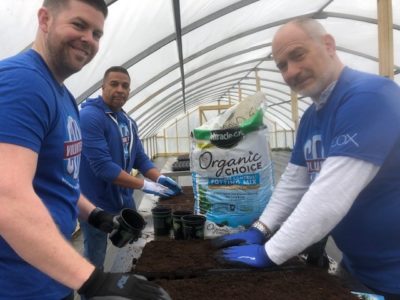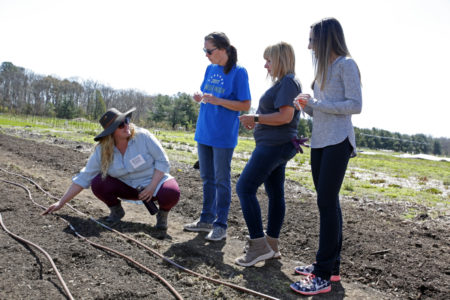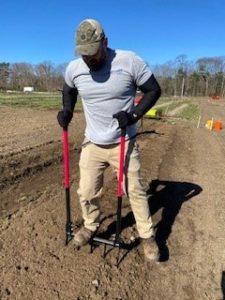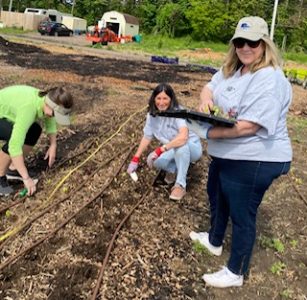Healthy Harvest Farm & Giving Gardens
Island Harvest Food Bank’s dedicated staff, board members, community and corporate volunteers, as well as local schoolchildren, are hard at work at our Healthy Harvest Farm, located on two acres of farmland at the Sisters of St. Joseph in Brentwood. This land is used as a learning model, as well as to provide increased access to healthy produce for more than 300,000 Long Islanders who are affected by hunger and poverty. Countless volunteers spend their days raking, weeding, and planting at the farm, many of whom come from a program run by World Wide Opportunities on Organic Farms (WWOOF). This program connects volunteers with farmers worldwide to promote cultural and educational experiences that help to build a sustainable, global community. Through WWOOF, volunteers from around the world are able to chip in on our farming efforts, while residing on the Sisters of St. Joseph property in dormitories.
Island Harvest Food Bank’s Giving Gardens, a pilot program that started in 2015 with two schools, five individuals, one farmer, and several community organizations, uses volunteers to grow fruits and vegetables in community gardens and on local farms that would otherwise go to waste. The program has grown tremendously, involving more farms, local organizations, and businesses, which in total will produce approximately 450,000 pounds of fresh produce, our new direction in supplementing an additional 300,000 meals. The Giving Gardens program promotes good, overall health by providing those we serve with healthier foods, nutritional guidance, and other resources. The program complements our ongoing produce program from the region’s farming community.
The Island Harvest Food Bank Giving Gardens are created through partnerships with local businesses, schools, communities and more. Each is uniquely designed to educate the community of the benefits of healthy eating while also learning the skills of gardening. Communities are encouraged to use the produce from the gardens to donate to Island Harvest, who then supply those in need with healthy vegetables that are part of a balanced and nutritious diet. By growing an extra row, donating excess supply or unused CSA boxes, the community can work together to help.
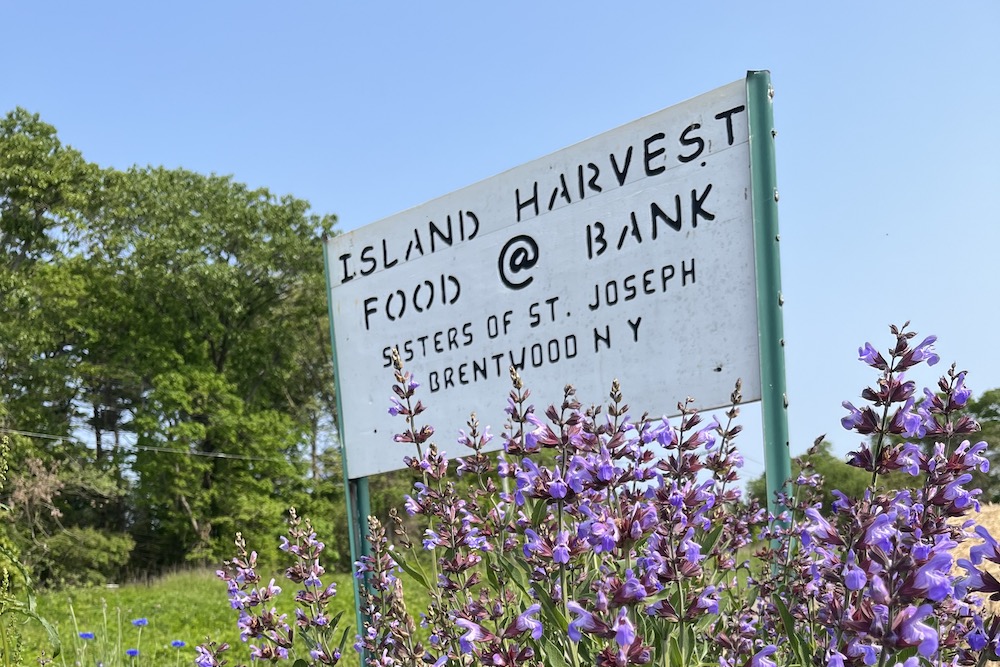
2023 Farm Crop List Graphic (1)
